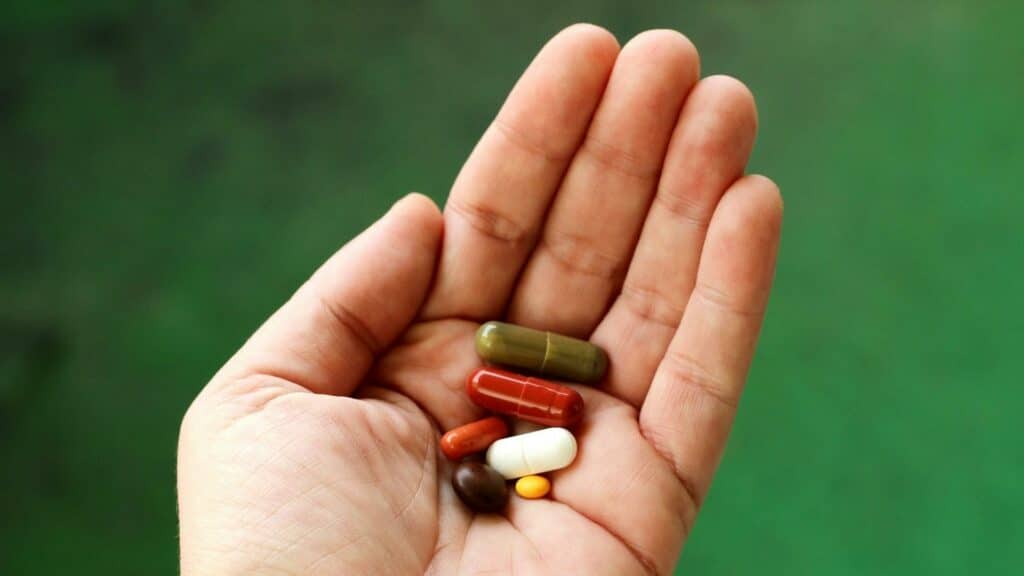Let’s figure out together how to break down a symptom and how it may or may not be related to a supplement or what you ate that day or week!
There are so many extenuating circumstances that come into play when a reaction occurs. Often we tend to place blame on the easiest culprit without digging a little deeper and asking critical questions to get to the true cause of the reaction.
Often people claim they are having a reaction to supplements when in reality they are not the cause of the reaction. In fact, it is quite rare for supplements to cause a reaction.
Now let’s dig a little deeper and find out if you’re really sensitive to supplements.
Symptom versus sensitivity?
When is it a symptom and when is it a sensitivity? There are people who say that they react to every food they eat. However, if they have these symptoms even when they don’t eat, then it’s not food sensitivity.
Does this apply to you? In this case, these are simply the symptoms you are struggling with, and you will have these symptoms no matter what you do in life or what you eat until you take the right steps to stop them long enough to heal. Food and chemical sensitivities take longer to heal.
Examples of food or chemical sensitivity
- You have to heal for years before you can go raw, or years before you can go fat-free.
- You can ONLY take supplements in small doses, but can tolerate a variety of supplements (chemical sensitive)
- You can only tolerate 2 – 4 nutritional supplements in low doses (chemical sensitive)
- You are allergic to certain foods (this is different than a sensitivity)
- You have ANY chemical sensitivities: gasoline, mold, fragrances, petrochemicals, smoke, etc.
Do you also react to things other than supplements?
Are you ONLY sensitive to supplements, or are you also sensitive to certain foods, chemicals, pesticides, fragrances, pollen, ragweed, etc.?
If you are sensitive to anything other than supplements, it is highly unlikely that you are sensitive to supplements. You’re probably dealing with a food or chemical sensitivity, which is very common. This comes from an overworked liver that is full of toxins. In such cases, the problem of the overloaded liver must be specifically addressed. Dietary supplements can be very helpful in such a case, as long as they are really clean and can get to the root cause of the overloaded liver.
Additionally, people with these sensitivities do much better with fewer supplements.
If you are indeed food and chemical sensitive, you need to slow down not only with supplements but also with healing foods.
When do the symptoms appear?
Do the symptoms that appear when you “react” to supplements also occur at other times in your life? When do the symptoms appear?
If the same symptoms have occurred at another time in your life when you weren’t taking supplements or weren’t taking the supplements you thought you were taking, then it’s highly unlikely that what you’re experiencing is due to a sensitivity to supplements.
It’s important to be a good detective on this topic because supplements are so helpful in managing your health and your viral symptoms. You shouldn’t falsely convince yourself that you’re sensitive to supplements and stop taking supplements when they could actually be the answer you need to advance your health. It’s not about ignoring the symptoms you’re experiencing, but rather about not associating your symptoms with the wrong cause. This also doesn’t mean you should continue taking supplements if you don’t feel comfortable with them. Read on and you’ll learn how to manage your symptoms.
The brand of nutritional supplements
What brand of supplements are you taking that you feel is causing a reaction? Is this the case? recommended brands from his list of nutritional supplements?
If you really have a reaction to a supplement, the reaction often comes from other ingredients in the supplement rather than the actual herb itself. Take a close look at the other ingredients in your supplement – for example, look for alcohol, stearates, maltodextrin, and GMO fillers.
It’s important to know what’s in your supplements and where they come from.
How much of a dietary supplement do you take?
At what dosage do you take the dietary supplements in question? Once you’ve made sure you’re taking pure supplements, have you considered that you might be taking too much of a supplement?
The next step is to reduce these supplements to a tiny amount and test if symptoms are still present. You may be associating a symptom with a supplement when there is actually no connection.
How do you cut back on supplements to test your reactions?
If you take a capsule, you can open the capsule and take just a pinch of the powder in the capsule.
If you’re taking tinctures or liquid supplements, reduce them to drops, and if you’re nervous about drops, you can add one drop to about 60 milliliters of water and take a small sip. This way you only get a fraction of a drop. This method can bring great success to sensitive people.
Don’t worry if you’re sensitive to foods or chemicals. You can still heal with lower doses of supplements, as many do.
Even if you’re starting out with food and chemical sensitivities and need to take it slowly, being able to take more supplements over time is a sign of healing.
So don’t give up – keep at it! Many people who were initially unable to take average dosages slowly build up and may even exceed the recommended average dosages as they heal.
Trigger exposure
Have you been exposed to a trigger recently? If so, what are these triggers? The triggers don’t necessarily have to occur on the day/week/month that you react. A trigger may have occurred a long time ago. For example, if someone has gone through a difficult emotional period or an extended period of additional stress, the symptom or condition may not manifest until months or even a year later.
Connecting things that are not connected
As humans, we often make connections between the foods we eat, the supplements we take, or the things we do in life. It’s hard to remember that when it comes to healing chronic illnesses, the connections are not always immediate. Just because someone took a supplement and experienced a symptom doesn’t necessarily mean it has to do with that supplement. More likely, the connection is to the foods that were eaten, the chemicals someone came into contact with, or some other troublemaker in the liver that can trigger such sensitivities.
It is so much easier for us to see immediate connections, but with chronic illness the connections are less obvious and much more nuanced. Don’t jump to conclusions and remember that the right supplements are incredibly beneficial. Also remember that when a symptom occurs, it is often the liver’s last straw and not what you ate or ingested at the moment.
Conclusion
The key takeaway is that you need to pay attention to the nuances. The worst thing you can do is automatically blame one of the most important elements of healing – pure and clean supplements.
When you understand what’s really going on in your body, you’ll have a better sense of what’s actually causing your reactions. For a deeper understanding of the causes, visit Muneeza Ahmeds Masterclass Understanding The Root Causes Of Chronic Illness. No matter what symptoms you have, in this course you’ll learn what’s causing them.
The topic can be confusing, but at the same time very helpful when we understand the power of supplements used correctly.
Source: Muneeza Ahmed
German translation: Sabine Menzel


